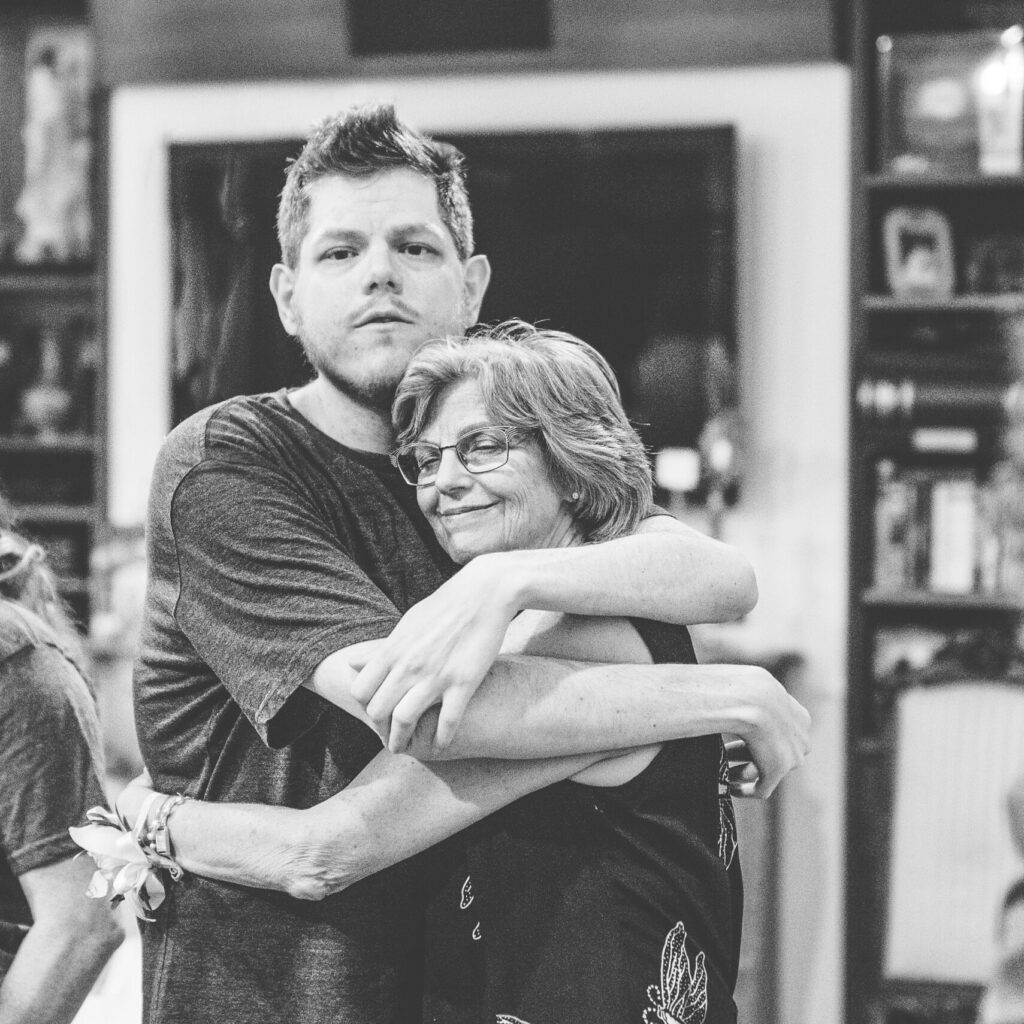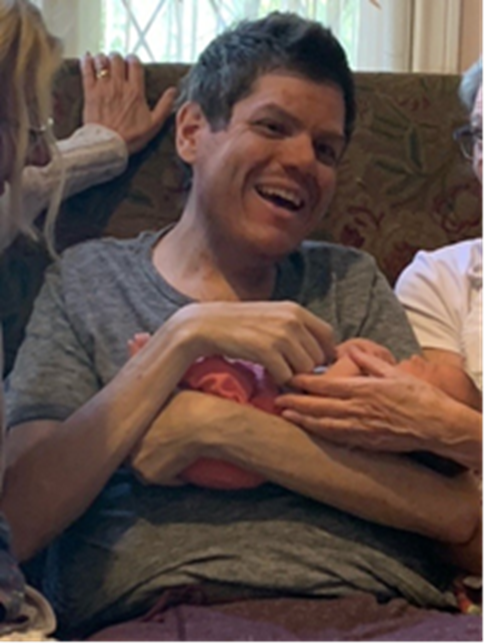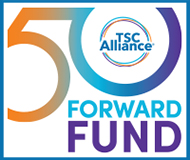
Micah Amado was born in 1984 with a quick wit and a kind heart. His mother, Honey Amado, knows this better than anyone.
They had like sensibilities, in humor and candor, in generosity and empathy.
“My son and I were very close,” Honey says. “As mother and child, we were a very good fit. He was very funny and we connected on many levels when he was a child and an adult.”
His kind heart caused him to feel deeply and to create meaningful relationships with those around him. His parents (his father, Ralph A. Amado (z”l*), died in 2010), grandparents, siblings, cousins, and with time, his cousins’ children, all adored Micah and feel his absence acutely since his death in 2022.
“He saw with his heart,” Honey says.
Micah was diagnosed with TSC in the late 1990s when a dermatologist investigated a mark above his eyebrow that had been there since birth. It was his pediatrician who told Honey about a very rare disease that Micah “certainly did not have” called tuberous sclerosis complex (TSC). Further symptoms confirmed that Micah, in fact, did have TSC but presented without some of the more common outward manifestations, like seizures.
“It was confirmed that Micah had TSC, and I’m thunderstruck,” Honey recalls. “I didn’t know enough about TSC to know whether his case would get worse or not worse… I went to visit my parents and began to cry when my father greeted me with a simple ‘How are you?’ My father said to me, ‘Don’t you worry. We are going to do whatever we need to do. Anywhere we need to go to understand this, to get information, to get Micah treated, we’re going to do that.’”
 As a teenager, when Micah learned he had TSC, he asked a poignant question: Could I pass this on to my children? That question, and so many others that stirred in Honey’s mind, led them to the TSC Alliance in search of answers.
As a teenager, when Micah learned he had TSC, he asked a poignant question: Could I pass this on to my children? That question, and so many others that stirred in Honey’s mind, led them to the TSC Alliance in search of answers.
“I began to appreciate that research in TSC helps us understand how other diseases like cancer and epilepsy work,” Honey says. “So, even though TSC is an orphan disease, understanding it is pivotal to understanding many other diseases affecting both adults and children … So, I realized the importance of research on TSC. And one way to support Micah was by supporting the TSC Alliance.” At the request of Honey, the Maurice Amado Foundation made a research grant to TSC.
Honey continued to learn new things about TSC. Because Micah had a mild case, it did not impact his cognitive abilities. In 2012, he graduated Cum Laude from the UCLA (University of California, Los Angeles), demonstrating his innate intelligence and curiosity.
Sadly, around 2007, Micah developed kidney disease (unrelated to his TSC). Honey gave him a kidney, which lasted for 10 years. When the donor-kidney failed, Micah began peritoneal dialysis from home, which sustained him for another five years. Micah died on September 29, 2022.
Because of his frequent trips to the Emergency Room at Cedar-Sinai Medical Center in Los Angeles, Honey makes an annual gift for emergency medicine research in Micah’s name. Each year, a researcher in emergency medicine will receive a grant from these funds. Moreover, Honey has created an endowment to fund this research grant in perpetuity and to sustain Micah’s name and memory. She has also made a gift to the TSC Alliance in honor of Micah.
 Honey acknowledges that philanthropy is a personal decision often deeply connected to a person’s experience. “Everyone has a different reason for giving,” Honey says. “We’re all going to pick different things to support. A project must speak to you and your interests while reflecting your motivations.”
Honey acknowledges that philanthropy is a personal decision often deeply connected to a person’s experience. “Everyone has a different reason for giving,” Honey says. “We’re all going to pick different things to support. A project must speak to you and your interests while reflecting your motivations.”
“I think no small part of it for many, and certainly for me, is a sense of gratitude. It’s not just gratitude for the ability to give, but for all that I have. Gratitude that there’s a TSC Alliance to which I could turn for knowledge or for support; gratitude that they’re doing the kinds of research that addresses this disease for the future; and gratitude that my son’s case was not as pronounced as it might have been… Philanthropy is one of the ways I express my gratitude.”
What Honey calls philanthropy, others call generosity. Honey quotes her mother, Micah’s grandmother, Mildred Kessler, as teaching her a fundamental lesson of philanthropy and generosity: “Generosity is not a function of money or of what you have. It’s a state of mind.”
For Honey, she is grateful for the ability to help medical research, including in the area of TSC, and to sustain her son’s memory.
Change the course of TSC and donate to the 50 Forward Fund today!
*In Hebrew, “zl” stands for “zikhrono/zikhrona livrakha,” which translates to “may his/her memory be a blessing”
